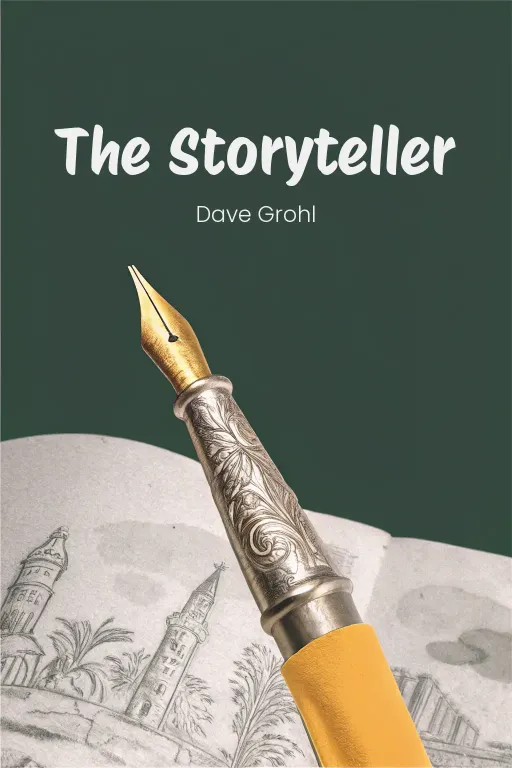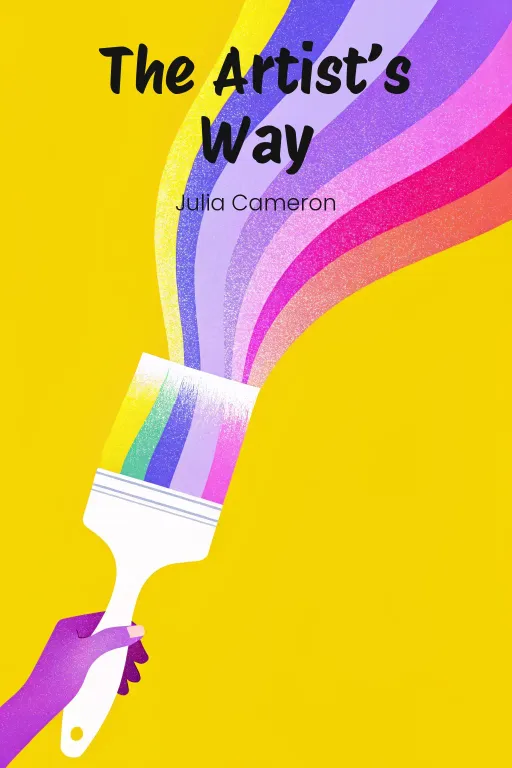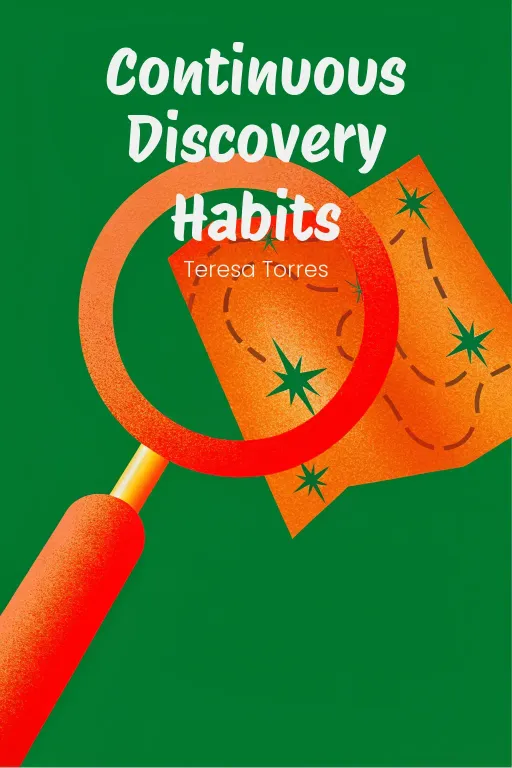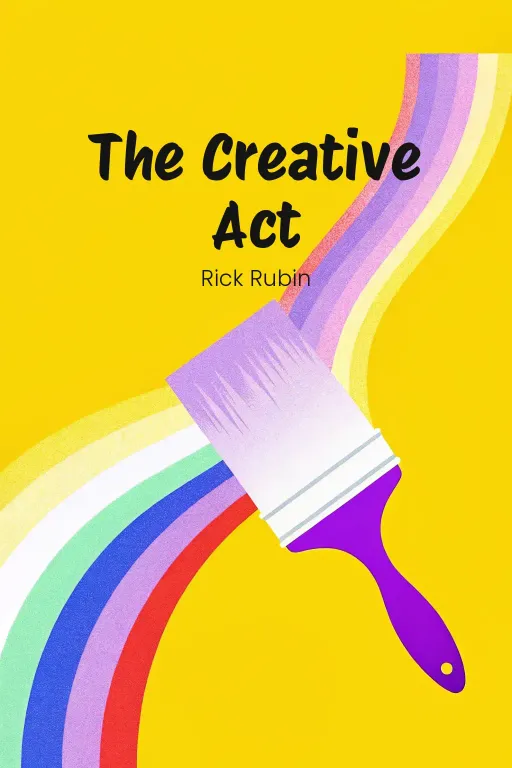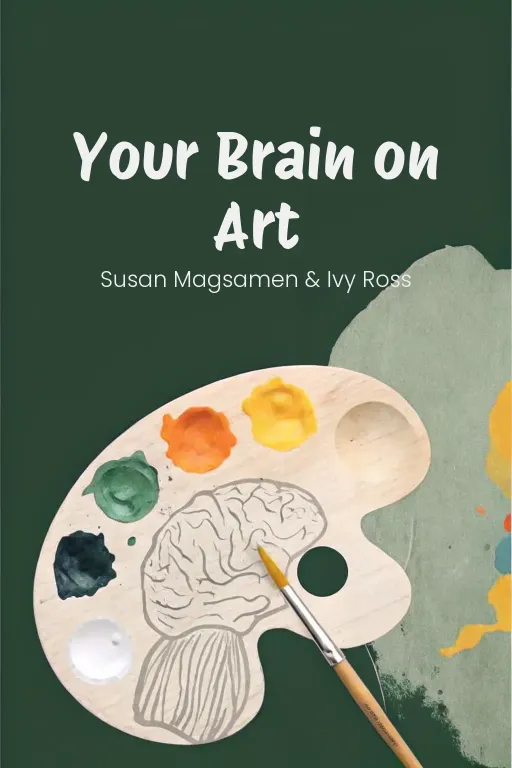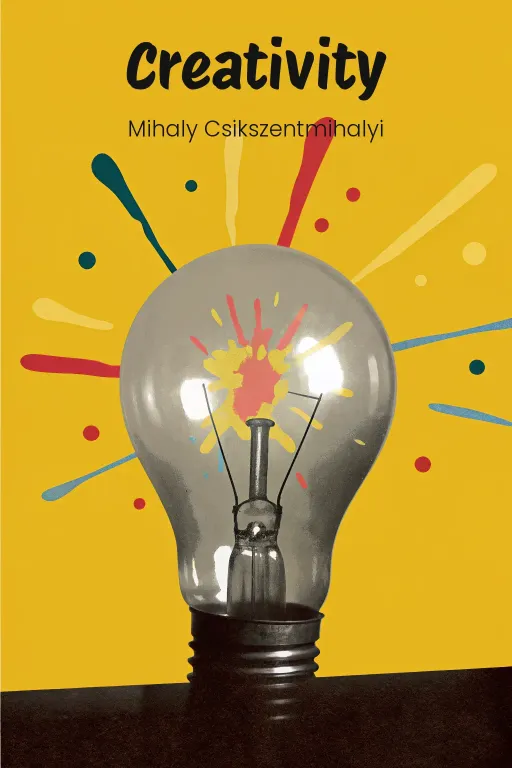
From Punk Rock Chaos to Rockstar Dad
Podcast by Chasing Sparks with Alex and Justine
Tales of Life and Music
From Punk Rock Chaos to Rockstar Dad
Part 1
Alex: Hey everyone, welcome back to the podcast! Today we're digging into a story that's part grit, part rebellion, and all heart. It’s a journey, really, from the utter chaos of punk rock to those quiet, life-changing moments of being a parent. Justine: Yeah, and if you're thinking, "Okay, what does a rockstar's life possibly have to do with me?" Well, stick around. It might have more to offer than you think. Whether you’re chasing your dreams, juggling family and work, or just trying to get back on your feet after life throws a curveball, this episode’s got something for you. Trust me. Alex: We're talking about Dave Grohl, of course – a guy whose life honestly reads like the ultimate rock-and-roll story. I mean, from banging on drums as a teen to headlining massive stadiums—and raising three daughters along the way? He really invites us into this life that's messy, musical, and incredibly human. Justine: Exactly! And his book really doesn’t hold back, right? It’s not just about the fame or the spotlight; it's about the scars—both the ones you can see and the ones you can't. It's about dealing with loss, about being creative, and really about how music just kinda… stitches everything back together. Alex: So, what we're going to do today is unpack three key moments, let's say chapters, of Dave's life: how his childhood kind of shaped his incredible resilience, how punk rock ignited that rebellious fire in him, and how being a musician and a father became the two main driving forces behind his constant reinvention. Justine: Think of it like the setlist of his life. First, you’ve got the opening act, his early years. He’s scrappy, super determined, learning to take a punch and just keep going, scars and all. Alex: Then we move into Act Two, the discovery of punk rock, just him chasing that raw, DIY energy that eventually fuels his path to Nirvana and beyond. Justine: And finally, the encore—finding that balance as a dad, still being an artist, and being a man who's determined to use music to help people heal and connect. Alex: So, whether you've been singing along to Foo Fighters for years or you don't know much about Dave Grohl, we promise this is going to be an inspiring—and pretty funny, at times—look at what it really takes to turn setbacks into something beautiful. Justine: And who knows, maybe you'll start to appreciate those scars a little more. Yours, Dave’s, even the ones on your favorite records. Alright, let's get started, shall we?
Foundations of Resilience and Creativity
Part 2
Alex: Alright, so we've set the stage. Now, let’s dive into Dave Grohl's early life – the experiences that shaped his resilience. Justine, remember the story about nine-year-old Dave and the golf club? Justine: Yeah, young Dave versus a pitching wedge. And let's just say, the golf club won, right? Alex: “Exactly!” But it's not just a story about a kid being clumsy. It's symbolic of how Grohl approached life, even then. Imagine this: Dave and his friends goofing off, he accidentally whacks himself in the head with a golf club. Bleeding, wide-eyed Dave walks home through the quiet suburbs, his friends probably in shock. Sounds like a childhood myth, doesn't it? Justine: It does. But come on, every kid gets hurt doing something stupid. What makes this moment so significant for Grohl? Why does he revisit it in his book like it’s some badge of honor? Alex: Good point. For Grohl, scars are stories. They're physical reminders of times when you took a risk, learned something tough, and kept going. They weren't just boo-boos; they became symbols of fearlessness – embracing mistakes as part of growing. Justine: So, scars as life’s highlight reel? I get it. But isn’t that a bit… romanticized? Does every scrape or bruised ego really have a profound lesson? Maybe he just needed glasses! Alex: Maybe! But Grohl connects this to a bigger pattern: throwing himself into the deep end, even when it hurts. That recklessness fueled his music. He doesn't see accidents or emotional scars as failures. They’re reminders that creativity and life itself require risks, then figuring out how to deal with the consequences. Justine: Fair enough. And that mindset probably helped him survive the craziness of Nirvana and the Foo Fighters. But how much of this resilience is just Dave being Dave, and how much is from outside forces? Like his mom? Alex: Ah, you're on to something. His mother, Virginia, was a huge influence. She wasn’t just patching him up – though she did plenty of that. She taught him that scars are inevitable, in childhood and adulthood. How you respond is what matters. Justine: And wasn’t she the one who’d say, "This is going to leave a scar" after he got hurt? Talk about literal and poetic. I can see her having a knack for those dual-purpose mom-isms. Alex: Exactly! That line perfectly captures her influence. For Dave, her acknowledgment of life's pain came with encouragement to see beyond it, to see the value in enduring it. And she did it all while being a single mom and teacher, raising a relentlessly curious kid like Dave. Justine: So, not a “wrap you in bubble wrap” mom. More like, “Go fall out of the tree, but learn something when you hit the ground” kind of mom. Alex: Precisely! She embraced Dave's creative, rebellious side. Instead of discouraging the drums or music obsession, she nurtured that passion. Her trust let him explore without fear of judgment. That laid the groundwork for resilience – whether facing rejection or setbacks, her lessons stuck with him. Justine: Okay, we’ve got the golf club and the life-lesson mom. But surely, resilience isn’t just about surviving stunts and getting Band-Aids. What about his first heartbreak? Emotional scars outweigh the physical ones, right? Alex: Oh, definitely. Enter Sandi. Thirteen-year-old Dave falls head-over-heels, swept up in young love. Then—bam—she breaks his heart. Sandi wanted to "stay independent." Imagine how that felt to young Dave. Justine: Crushing, right? Pun intended. Alex: Crushing indeed. But this heartbreak uncovered another side of Dave. He doesn't sulk; he picks up his guitar and pours his emotions into music. That loss transformed him – it taught him to turn pain into self-expression. Justine: Let me guess – this was his first taste of emotional alchemy? Taking something painful and crafting it into something beautiful, like a song. Alex: Bingo. It was a crash course in channeling feelings, and it set the tone for his songwriting. When we think about Grohl's lyrics or the energy of his music, it comes from that understanding: Vulnerability isn't a weakness. It's fuel for connection, healing, and meaningful art. Justine: Alright, that’s a pretty profound takeaway for a kid barely out of middle school. So, between stunts, maternal guidance, and heartbreak, these early experiences shaped the Dave we know today. Alex: Exactly, and what ties it all together is his resilience. Whether physical scars from the golf club or emotional ones from Sandi, Dave emerged stronger each time. And those lessons – embrace your scars, embrace vulnerability – grew more significant as he tackled life in music and beyond.
Punk Rock as a Catalyst for Rebellion and Self-Discovery
Part 3
Alex: So, these early experiences “really” toughened him up and, you know, he found this liberating power in punk rock. Justine, let’s dive into that moment when Dave, still a teenager, wandered into this completely different world, right? His introduction to punk, all thanks to his cousin, Tracey. Justine: Tracey! Oh, man, she just waltzes in and turns his whole world upside down. I mean, can you imagine? Dave's probably expecting your average, you know, ordinary relative, and then boom! Tracey appears, full-on punk! Doc Martens, shaved head, the works. It was like she was screaming, "I am teenage rebellion!" Alex: Totally transformative. It wasn’t just a look; it was like a portal opening up for Dave. He had been living this normal suburban life, into sports and pop music and all that. Suddenly, Tracey showed him something completely different, something raw, and electrifying. Justine: So, Tracey was like his punk Yoda, right? “To the basement, you must go, young Grohl.” Then what happened? Did she just throw on some records? Alex: Exactly! She played all these albums in her room, Black Flag, Dead Kennedys, the Misfits. Surrounded by posters and all the punk stuff. It wasn’t just music; it was an epiphany. Each song was so raw, and Dave just felt like he was plugging into this energy of rebellion he’d never known before. Justine: Seriously, though, can we just take a moment? Her room must've been like a shrine to the unconventional. Just imagine walking in and being surrounded by those sounds, the images, the whole vibe. That's the kind of thing that sticks with you. Alex: Absolutely, because punk wasn’t just music, it was a whole attitude. And Tracey, in that room, she embodied it. She didn’t just play the music, she showed him what it meant to reject societal norms and be yourself unapologetically. Justine: And then, she cranks it up to eleven, right? Takes this suburban kid—khakis, maybe?—to a Naked Raygun show. That night is practically legendary in his story. Alex: Oh, totally. Tracey just throws him into the deep end of punk rock culture. The place is packed, leather jackets, the whole place just buzzing with chaos, almost. Dave’s nervous, but he’s hooked. Then Naked Raygun starts playing, and the place explodes. Justine: And the mosh pit! I can just see Dave, trying to dodge elbows, just trying to survive this swirling chaos. It's like a baptism by slam-dancing. Alex: Baptism is spot on—totally immersive, overwhelming, and transformative. He’s terrified at first, sure, but it turns into exhilaration. He feels the rush of that raw communal energy music can create for the first time. It isn’t pretty, but it’s so alive. He realized then that music didn’t have to fit a mold; it could be raw, rebellious, and so personal. Justine: And that night sets the stage for everything else. But Alex, let me play devil's advocate here. Punk rock gets a bad rap, right? People call it just noise. What was it about punk that grabbed Grohl, beyond the adrenaline rush? Alex: Great question. For Grohl, punk wasn’t just about the sound; it was the whole philosophy. It was like, anyone can pick up an instrument and have a voice, and that being imperfect is alright. For a kid like Dave, restless and not sure how to express himself, punk was a lifeline. Justine: Ah, so punk was like, “Don’t worry about being perfect. Just go out there and mean it.” I get it. Alex: Exactly. For Grohl, punk showed him how to be authentic. He didn’t need to be the best drummer or guitarist; he wanted to feel something, express something real. That rejection of expectations, in music and life, shaped who he was creatively. Justine: And then he auditions for Scream at just seventeen, right? That’s pretty bold. He's basically still a kid, and he decides to join a touring punk band. Alex: Bold is an understatement. Most kids that age are thinking about prom. Dave sees a flyer for Scream needing a drummer, and he thinks, “Why not me?” The audition was fast, and he just drew on everything he'd learned drumming along to punk records in his room. Justine: And it paid off. They saw someone who got the grit of punk. Joining Scream wasn’t just him stepping into the spotlight; it was him living the punk life, baptism by fire. Alex: Living in a van, playing in dives, scraping by—it was tough, but also liberating. Dave wasn’t just playing, he was living it. Those Scream days set the stage for his DIY spirit and work ethic for the rest of his career. Justine: So, circling back, punk wasn’t just about rebelling for the sake of it. For Grohl, it was rebellion with a purpose. It showed him how to embrace life’s chaos and turn it into something meaningful, personally and musically. Alex: Exactly. Being authentic, individual, and prioritizing passion over perfection—that’s what Grohl carried with him. And it’s a lesson we all could learn from. The best way to rebel is to be true to yourself.
Rebuilding and Reinvention Through Family and Collaboration
Part 4
Alex: Exactly, Justine. So, Dave's perfectly set for the next chapter. I mean, as his career took off, he had to deal with the whole fame thing, plus some really tough losses. And that led him to this period of, like, rebuilding, reinventing himself through family and working with other artists. You know, redefining who he was Post-Nirvana, balancing being an artist and a dad. Justine: Right, it's amazing how he turns heartbreak into something creative, isn’t it? Losing Kurt and Nirvana, that was like a total earthquake in his life. Devastating personally, and creatively left him with nothing. But instead of just crashing, he built something new. Starting the Foo Fighters was his way of finding a new direction. Alex: Totally. And what's really cool is that he went back to basics. That first Foo Fighters album wasn't some huge production. It was just him, alone in a studio, playing all the instruments, recording everything himself. That's pretty brave. But kind of lonely, don't you think? Justine: Yeah, I can see that. Alex: It was, but that's why it's so powerful. He said it was like therapy. Making that album alone, that's how he dealt with what happened with Nirvana. Not just the career stuff, but all the emotions. It was raw, not perfect, and that's what people connected with. It showed him that music could still be his lifeline, even when things were really tough. Justine: Okay, but then comes the tricky part, right? Going from being a solo artist to, you know, actually forming a band. That's when things get messy. Alex: Messy is putting it lightly. Finding the right people for Foo Fighters wasn't just about talent. It was about finding people who shared his vision, who could stick together through thick and thin. There were lineup changes, personality clashes, tour exhaustion, I mean, it was a crash course in leading and collaborating. Justine: And remember that moment in '98? Nate Mendel, the bassist, almost quit, and Dave just lost it. He basically said, “I’m sick of having to teach people these songs!” Harsh, maybe, but it shows how much he was carrying. Alex: Exactly! It’s so human, though. He wasn’t just the frontman; he was the one trying to keep everything together. What's great is that moment led to a breakthrough. Nate stayed, and that road trip they took together afterwards changed everything. It showed them that friendship and communication were as important as the music. Justine: And that friendship extends to the music itself, right? Like Studio 606. Dave took control again, creating a space where they could experiment without any pressure from the industry. Alex: Oh, Studio 606 was a game-changer. It started as a DIY thing in Dave’s basement, and it became this haven for creativity. The idea was simple: if you own the space, you own the process. No studio fees, no outside pressure. Just a band working on their own terms. Their third album, “There Is Nothing Left to Lose”, came out of those sessions, and it’s one of their most personal and cohesive works. You can really hear how free they were. Justine: And “Learn to Fly” – that song perfectly captures that feeling, doesn’t it? The mix of hope and just pushing through. It’s like the essence of what Dave was building then: resilience, freedom, starting fresh. Alex: Exactly! And then you have the whole collaboration thing, which is another key part of his reinvention. He was already doing side projects, but forming supergroups like Them Crooked Vultures took it to a whole new level. Can you imagine sitting down at Medieval Times – yes, Medieval Times – with Josh Homme and John Paul Jones to brainstorm? Justine: I still can’t decide if that’s completely absurd or genius. You’re eating turkey legs and talking music with one of rock legends. And then John Paul Jones is in?! That’s like joining the Avengers for a rock musician. Alex: Totally! And it’s amazing how equal everyone was. No strict roles, everyone swapping instruments, trying new things, playing off each other. It wasn’t about egos; it was about exploring and pushing boundaries. That’s why it worked so well. Justine: And you know what's impressive? Even outside those big projects like Them Crooked Vultures, Dave collaborates with artists from “every” part of the music world. He's jamming with Paul McCartney, and he's “still” nervous? That’s pretty humble for someone that accomplished. Alex: Exactly! That's what makes him relatable. He sees collaborating as a way to learn and grow. It’s clear he sees music as much about relationships as it is about art. And that idea carries over beautifully into his role as a father. Justine: Fatherhood. Teaching your daughter drums, changing a tour to make it to a dance,. I think that’s where Dave’s transformation really hits home. Alex: Yes, it really shows you what he values. He didn’t think being a musician meant giving up being a dad. When his daughter wanted to learn drums, it wasn’t just a lesson. It was a connection, passing something on to the next generation. Justine: And I love how he brings music into their family, not as some big "legacy" thing, but as fun. Just jamming together, sharing stories about people like Joan Jett, he's making memories, not just music. Alex: Exactly! And that's why his story is so powerful. Dave doesn’t see fame or music as the end goal. They’re ways to connect – with fans, with other artists, or with his family through shared experiences. Justine: So, the big idea here is resilience through reinvention, right? He’s shown that even after a huge loss, you can rebuild. And whether it’s through a band, a studio, working with others, or just spending time with your kids, reinventing yourself doesn’t mean losing who you are. It means finding new ways to be who you’ve always been. Alex: Exactly, Justine! And for Dave Grohl, that's a legacy built on heart, not just on sound.
Conclusion
Part 5
Alex: Okay, time to bring this home. Today, we've walked through Dave Grohl's unbelievable journey, right? We talked about those childhood scars, both the visible ones and the ones you can't see, and how they fueled his resilience. And that moment he discovered punk rock? Total game-changer, turning teenage angst into real artistic expression. Then, after losing Kurt, seeing him rebuild through family, collaboration, and, of course, the music itself. Justine: Exactly. And it’s clear that Grohl’s not just a collection of rock anthems and magazine covers. His life, honestly, feels like a masterclass in how to take the curveballs life throws—whether it's a literal golf club to the head, a painful breakup, or, you know, the earth-shattering end of Nirvana—and actually alchemize them into something powerful. Resilience, authenticity, and a whole lot of heart. That’s the essence, right? Alex: Couldn't agree more. His story, it's a powerful reminder that our scars, whether they're on display or hidden deep down, they can be badges of honor. They represent the risks we’ve taken, the battles we’ve fought, and all the lessons we’ve internalized. Grohl demonstrates that it's not about dodging pain, because let's face it, that's impossible. It's about how we rise above it, transform it, and channel it into something that truly matters. Justine: So, what’s the bottom line here? Well, whether you're pursuing that big dream, reinventing yourself, or just trying to keep all the plates spinning like Dave Grohl—the rockstar who’s also a devoted soccer dad—remember this: Your true self and your ability to bounce back are the only two things you need. So, go out there, embrace those quirks, and let your voice be heard. Loudly.


